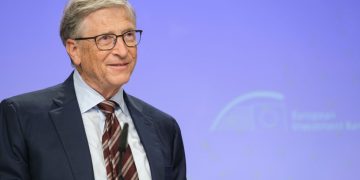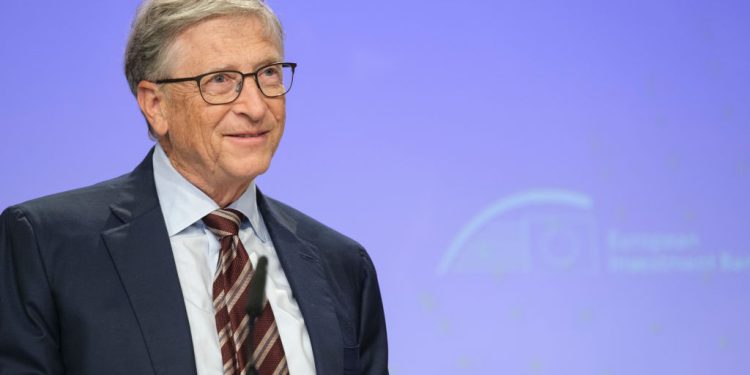Microsoft co-founder Bill Gates revealed how artificial intelligence (AI) could reduce the work week.
On Nov. 21, Gates, 68, appeared on former “The Daily Show” host Trevor Noah’s podcast “What Now?” Noah asked Gates what he thinks about the “ramifications” artificial intelligence could have on jobs.
“If you eventually get a society where you only have to work three days a week or something, that’s probably OK,” the billionaire said. “If the machines can make all the food and the stuff and we don’t have to work as hard.”
Additionally, the philanthropist said freeing up “human labor” could make room for other endeavors.
“You could help elder people better, have small class sizes, the demand for labor to do good things is still there if you match the skills to it and then if you ever get beyond that, OK, you have a lot of leisure time and will have to figure out what to do with it,” he continued.
In March, Gates wrote a post on his blog, GatesNotes, titled “The Age of AI has begun” and called the technology “revolutionary.”
“Philanthropy is my full-time job these days, and I’ve been thinking a lot about how—in addition to helping people be more productive—AI can reduce some of the world’s worst inequities. Globally, the worst inequity is in health: 5 million children under the age of 5 die every year,” he wrote.
Gates continued, “That’s down from 10 million two decades ago, but it’s still a shockingly high number. Nearly all of these children were born in poor countries and die of preventable causes like diarrhea or malaria.”
Additionally, he stated, “It’s hard to imagine a better use of AIs than saving the lives of children.”
He also addressed some of the “concerns” and risks that could come with artificial intelligence.
“Other concerns are not simply technical,” he explained. “For example, there’s the threat posed by humans armed with AI. Like most inventions, artificial intelligence can be used for good purposes or malign ones.”
Gates added, “Governments need to work with the private sector on ways to limit the risks.”
He also addressed the “possibility that AIs will run out of control.”
“Could a machine decide that humans are a threat, conclude that its interests are different from ours, or simply stop caring about us?” He inquired.
Gates continued, “Possibly, but this problem is no more urgent today than it was before the AI developments of the past few months.”

























